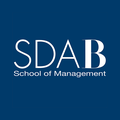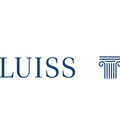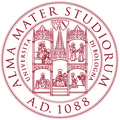MBA in Italy
With its undeniable charm, from the ancient ruins of Rome to the romantic canals of Venice, Italy is a land celebrated for its art, culture, and culinary delights. Beyond these, it also offers promising opportunities for your MBA aspirations.
From the benefits of studying in this captivating country to the nitty-gritty details of costs, career prospects, admission requirements, and more, we'll provide you with a comprehensive guide to pursuing your MBA in Italy.
Why Study MBA in Italy
Italy's thriving innovation ecosystem, coupled with its historical strengths in industries like fashion and design, offers a rich environment for career specialization and entrepreneurial pursuits.
Italy boasts prestigious business schools like Bocconi University and Politecnico di Milano, renowned for their high-quality MBA programs and strong industry connections.
Milan, in particular, stands out as a global fashion and design capital and a major European financial hub, providing an ideal setting for networking and job prospects across diverse sectors such as fashion, luxury goods, finance, and technology.
Additionally, Italy's exceptional quality of life, stunning landscapes, and relaxed pace of living create a well-rounded and enjoyable MBA experience. Picture leisurely afternoon walks through picturesque cobblestone streets, indulging in authentic Italian cuisine at charming local trattorias, and exploring the country's renowned historical sites and natural beauty on weekends. What more can one ask for?
MBA Programs in Italy
Italy's MBA programs are gaining prominence, offering a captivating mix of culture, innovation, and education.
Here are some of the best MBA programs offered by Italian universities and business schools that are renowned for their academic excellence and international reputation:
- SDA Bocconi - Full-Time MBA
- Polimi Graduate School of Management - International Full-Time MBA
- LUISS Business School - Full-time MBA
- MIB Trieste School of Management - MBA in International Business
- Bologna University Business School - Global MBA (5 specializations)
MBA in Italy Program Types & Duration
MBA programs in Italy come in various formats to accommodate diverse needs and career stages. However, the most common types that you'll find include the following:
- Full-Time MBA. Typically lasting one to two years, full-time MBA programs offer an immersive experience for recent graduates or early-career professionals looking to accelerate their careers.
- Executive MBA (EMBA). EMBA programs are designed for mid to senior-level professionals who wish to enhance their leadership skills while continuing to work. These programs often have flexible schedules and can last from 12 months to two years.
- Hybrid MBA. Hybrid MBA programs combine in-person and online components, providing a balanced approach to education. The duration varies but often ranges from 18 months to two years.
Italian MBA programs offer a diverse range of intriguing specializations, exemplified by Bologna University Business School's unique options:
- Supercars, Superbikes and Motorsports
- Green Energy and Sustainable Businesses
- Food and Wine
- Design, Fashion, and Luxury Goods
- AI and Manufacturing
MBA in Italy Eligibility
Eligibility criteria for MBA programs in Italy may vary slightly depending on the specific institution and program. However, here are some common eligibility requirements typically expected for MBA admissions in Italy:
- Bachelor’s Degree.
- Work Experience. Many MBA programs in Italy prefer candidates with prior work experience. While requirements vary, a minimum of three to five years of professional experience is often needed, especially for full-time and executive MBA programs.
- Language Proficiency. As most MBA programs in Italy are taught in English, non-native English speakers are typically required to demonstrate English language proficiency (IELTS or TOEFL). If you choose to pursue a program taught in Italian, the CELI or CILS exams are required.
- Entrance Exams. Some MBA programs may require candidates to submit standardized test scores, like the GMAT or GRE, whereas some have in-house exams, which you opt for instead. However, requirements vary from one institution to another.
- Recommendation Letters.
- Interview. Many MBA programs in Italy conduct interviews with shortlisted candidates to assess their motivation, goals, and suitability for the program.
MBA in Italy Cost
Italy's appeal lies in its high quality of life, rich culture, and diverse business environment, which can make it a valuable investment for those seeking a unique educational and professional experience. However, it's essential to consider the associated costs to plan your MBA journey effectively.
Tuition Fees
Tuition fees for MBA programs in Italy exhibit considerable variation based on factors such as the university, program format (full-time, executive, part-time, online), and whether the institution is public or private. In general, prospective students can expect tuition costs to span from €25,000 to €75,000, but specific figures may differ according to the chosen program and institution.
Here is a full list of tuition fees for the best MBA programs offered in Italy:
| School | Tuition |
|---|---|
| SDA Bocconi | €75,000 |
| Polimi Graduate School of Management | €43,000 |
| LUISS Business School | €30,000 |
| MIB Trieste School of Management | €25,000 |
| Bologna University Business School | €35,000 |
Living Costs
Living expenses in Italy can fluctuate considerably based on the urban area or district, individual lifestyle preferences, and personal choices. However, in general, the estimated monthly living costs for a single person are approximately €828.5.
- Dining options can vary, with an inexpensive restaurant meal typically ranging from €10 to €25, while a mid-range three-course meal for two people can cost between €45 and €100.
- Local transportation costs fluctuate, with a one-way ticket ranging from €1.25 to €2.20 and a monthly pass priced between €30 and €50.
- Basic utilities, covering electricity, heating, cooling, water, and garbage for an 85m² apartment, can vary from €120 to €350 per month.
- Housing expenses also vary considerably depending on the city you choose and the exact location: a one-bedroom apartment in the city center can cost between €450 and €1,410.78 per month, whereas outside the city center, the monthly rent for a one-bedroom apartment ranges from €350 to €927.
MBA in Italy Careers
After completing your MBA in Italy, you can convert your study permit into a job search permit for 12 months if you hold an Italian degree (bachelor's, master's, or Ph.D.) and have adequate financial means.
An MBA in Italy paves the way for a wide array of career possibilities, both locally and globally. Graduates armed with the knowledge and skills acquired during their MBA journey find themselves in high demand across various sectors. These career paths span from business and management consulting, finance, and technology to the realms of luxury fashion and healthcare management.
Italy's burgeoning startup scene also beckons aspiring entrepreneurs, while opportunities in sustainable business and tourism add to the diverse landscape. Moreover, the versatility of an MBA enables you to assume roles in general management, nonprofit organizations, government agencies, and more.
Here are some companies where SDA Bocconi alumni have successfully pursued their careers:
- Strategy Consulting. McKinsey & Company, EY-Parthenon, Bain & Company
- Healthcare. Abbott Laboratories, Roche, Eli Lilly and Company, Johnson & Johnson
- Boutique Consulting. Jakala, BPI, ZS, Interbrand
- Industrial Goods. Kerakoll Group, Solvay, Ammega, Emerson Electric
- Financial Services. Generali Group, Credit Suisse, Admiral Group
- Retail & Luxury Sector. Bottega Veneta, L’Oréal, Louis Vuitton, Van Cleef & Arpels
- Technology. Amazon, Google, Infosys, Meta
Average Salary in Italy for MBA Graduates
The average salary for MBA graduates in Italy can vary significantly depending on several factors, including the industry, job role, geographic location, and the specific MBA program attended. On average, MBA graduates in Italy can expect a salary range of approximately €35,000 to €80,000 per year. However, it's essential to highlight that there is the potential for higher salaries, particularly for graduates entering competitive industries such as finance or consulting.
For instance, the MBA Class of 2022 at SDA Bocconi reported an impressive average post-MBA gross salary of €100,728. This figure takes into account placements in various global locations, showcasing the potential for MBA graduates to achieve higher levels of compensation based on their individual circumstances and career choices.
Can I Study MBA in Italy Without GMAT?
Pursuing an MBA in Italy without the GMAT is certainly possible, as several prestigious Italian business schools offer alternative admission pathways. While institutions like SDA Bocconi typically require GMAT or GRE scores, they do make exceptions under specific circumstances, allowing candidates to request authorization to take the SDA Test as an alternative.
Furthermore, Polimi Graduate School of Management, LUISS Business School, MIB Trieste School of Management, and Bologna University Business School have more flexible admission requirements. Polimi and LUISS have their in-house admission tests, MIB Trieste prefers the GMAT but doesn't mandate it, and Bologna University Business School offers applicants the choice of a written test or submitting GMAT scores.
Can I Study MBA in Italy Without Work Experience?
Most MBA programs in Italy have specific work experience requirements ranging from three to five years. Some flexibility exists, such as at SDA Bocconi, where exceptions can be made for candidates with exceptional academic backgrounds, strong test scores, and relevant skills, emphasizing qualities like professional growth, leadership potential, teamwork, and a willingness to take on responsibilities over traditional managerial experience.
While it's possible to find exceptions, these work experience requirements are generally standard for MBA programs in Italy, and you should carefully review the specific admission criteria of their desired program to determine eligibility.
Can I Study for an MBA in Italy in English?
In Italy, you have the option of enrolling in MBA programs offered in either English or Italian. However, it's noteworthy that all the prestigious schools mentioned in the article offer MBA programs conducted entirely in English.
This accommodation is intentionally designed to attract a diverse international student body and ensure accessibility for non-Italian speakers. This makes Italy a compelling destination for those seeking an English-language MBA education while also providing the unique opportunity to immerse themselves in the country's rich culture and vibrant business environment.
Italy's appeal lies in its rich history, innovative environment, and diverse prospects, making it an enticing choice for an MBA adventure like no other. So, why not say "si" to an Italian MBA adventure?



